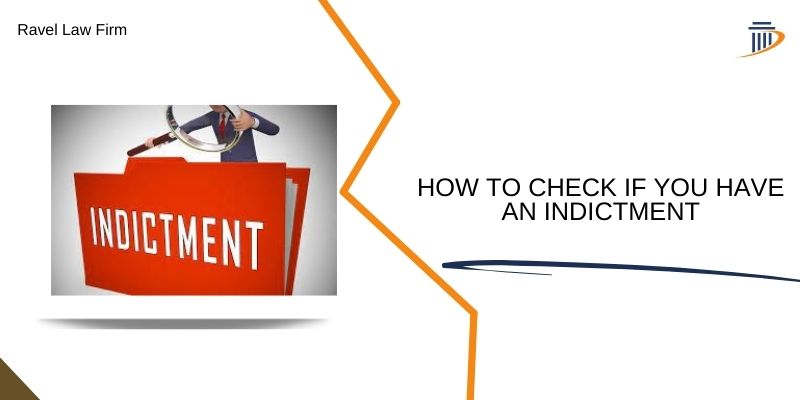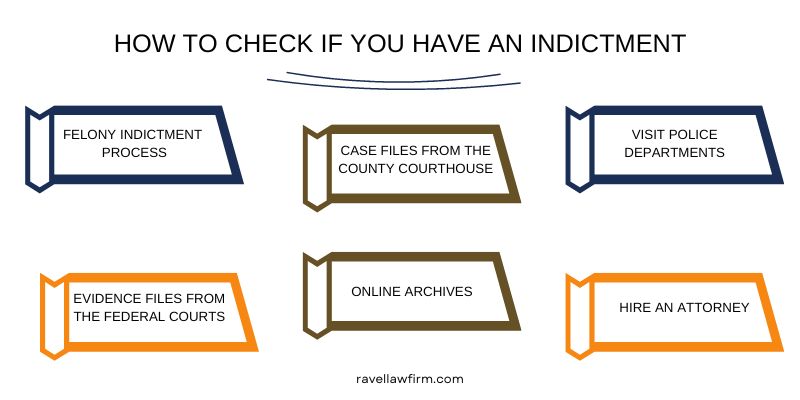The prospect of facing criminal charges alone might be terrifying. Still, having all the data you need at your disposal is crucial to choose the best for a particular situation.
An essential initial step is determining if an indictment has been filed against you. Still, if you are still getting familiar with the judicial process, you may need help with how to do so.

Suppose you’ve been on the receiving side of an allegation and are wondering what to do next. In this case, a question arises how do you know if you have a secret indictment used? In that case, this article has all the information you’ll require.
An official allegation that a person has committed a significant felony based on the existing data is called an arrest. Indictments are filed against suspects when there is enough information to connect them to a particular offense.
How to Check If you have an Indictment?
The contents of an indictment are only known to the members of the jury trial that issued it, and they are prohibited from discussing it. However, there are resources available to help you learn more about the judicial process and determine if a sealed indictment is a possibility in your case. Understanding the process of a secret indictment is crucial.
1. Felony Indictment Process
Familiarizing yourself with the accusation procedure can be beneficial if you or someone you know has been charged or may be indicted by a special prosecutor.
It is important to remember that the prosecution is under no obligation to inform a defendant that the federal judge is considering indicting them until the indictment has been officially handed down.
2. Visit Police Departments
Suppose you want to find out more about felony history inquiries. In that case, you should contact the local agency in charge of policing in your area. You can get a copy of your criminal background but not anyone else’s. Different states have different rules. Whether the national prisoner resided or conducted a company in a different region, you can also check with that region’s local judiciary and police to see if they had no evidence of the prisoner’s conviction.
See Also: Difference Between Misdemeanor And Felony
3. Case Files from the County Courthouse
Indictments are available at all county courts and usually back a few months. The indictments will list the defendant’s identity, the alleged offense(s), and a declaration from the prosecutor’s office certifying the accusation.
If you intend to surrender yourself, you ought to have your lawyer examine these data for you because they are not required by law to reveal any data regarding your location to the court due to the defense lawyer’s confidentiality.

4. Evidence Files from the Federal Courts
Suppose you need to verify the spelling of an accused’s identity. In that case, you can request a copy of the indictment from the court at any federal courthouse.
The magistrate may order the accusation to be kept under wraps until subject is detained or citation is delivered. Any charges in this issue would be classified and unavailable to your lawyer. However, your legal counsel should give your insight into the possibility of a secret indictment.
5. Review Local & State Court Records
While a search of local and federal court documents may turn up duplicate data concerning some police files that may have already been examined, such data can still be informative if you know the identities of the people involved. The local judicial process must be contacted the same way as the police when requesting such records.
6. Online Archives
A local indictment could have been filed by a trial court in another region or state or by another state court altogether. Therefore, viewing court documents from anywhere in the country is essential. The federal court system runs the publicly accessible portal PACER. Each insolvency and state trial in the United States is represented here.
The National Center for Civil Cases also featured links to the various state court websites. To avoid revealing your position throughout your inquiry, it is recommended that you have an acquaintance sign up for the sites first.
7. Hire an attorney
A concealed accusation may continue even after a thorough check of courts and police documents has been conducted. To learn more, the person has few options at this stage.
Assuming you have done everything possible to resolve the situation, your next logical step is to speak with a criminal defense attorney. Criminal attorneys will have privy to more secret knowledge than the average person, or at minimum, will be capable of learning more information than the average person.
Final Words On Checking Indictment
If you are wrongfully indicted, you are being investigated for a major felony that you may or may not have committed. This can be a terrifying prospect. An indictment only indicates enough evidence to file formal charges against you; it does not indicate guilt or punishment.
The most crucial step is having a competent, trained, and skilled lawyer on board to defend you against the indictment, argue for your liberties, and increase your prospects of a positive outcome.
Also Check Out What Happens After Grand Jury Indictment
FAQ’s
Where to look for a Sealed Indictment?
Even though secret indictments are unusual, they do occur on occasion. An indictment is considered secret if the prosecutor decides against making it public. The Freedom of Information Act calls for extra-judicial proceedings to establish the necessity of a secret indictment.
Are Criminal Charges ever dismissed once they have been Filed?
Are there circumstances under which charges can be dismissed upon indictment? Having charges withdrawn after an indictment is not common, but it does happen. It becomes less evident that the individual committed the crime if, for example, fresh evidence is revealed that exonerates the individual or sheds new light on the case.
What is the Distinction Between an Indictment and a Charge?
It’s easy to see and understand the similarities between an indictment and a charge. A prosecutor will file charges against an individual when they have sufficient evidence to believe the subject committed a crime.
How do you obtain a Federal Indictment?
Anyone suspected of committing a federal offense may be indicted on federal charges. A grand jury will hear the evidence and determine whether or not an offense has been committed.

Hi, I’m Brian Gary; I have my Doctor of Juridical Science (SJD) degree from SMU Dedman School of Law in Dallas. Over the years, I have dealt with many families and successful corporate Legal cases. I have counseled many people on legal matters, and along with my profession, I write about Law on my blog. Please feel free to contact me for counseling/case discussion; I’ll be happy to help you.